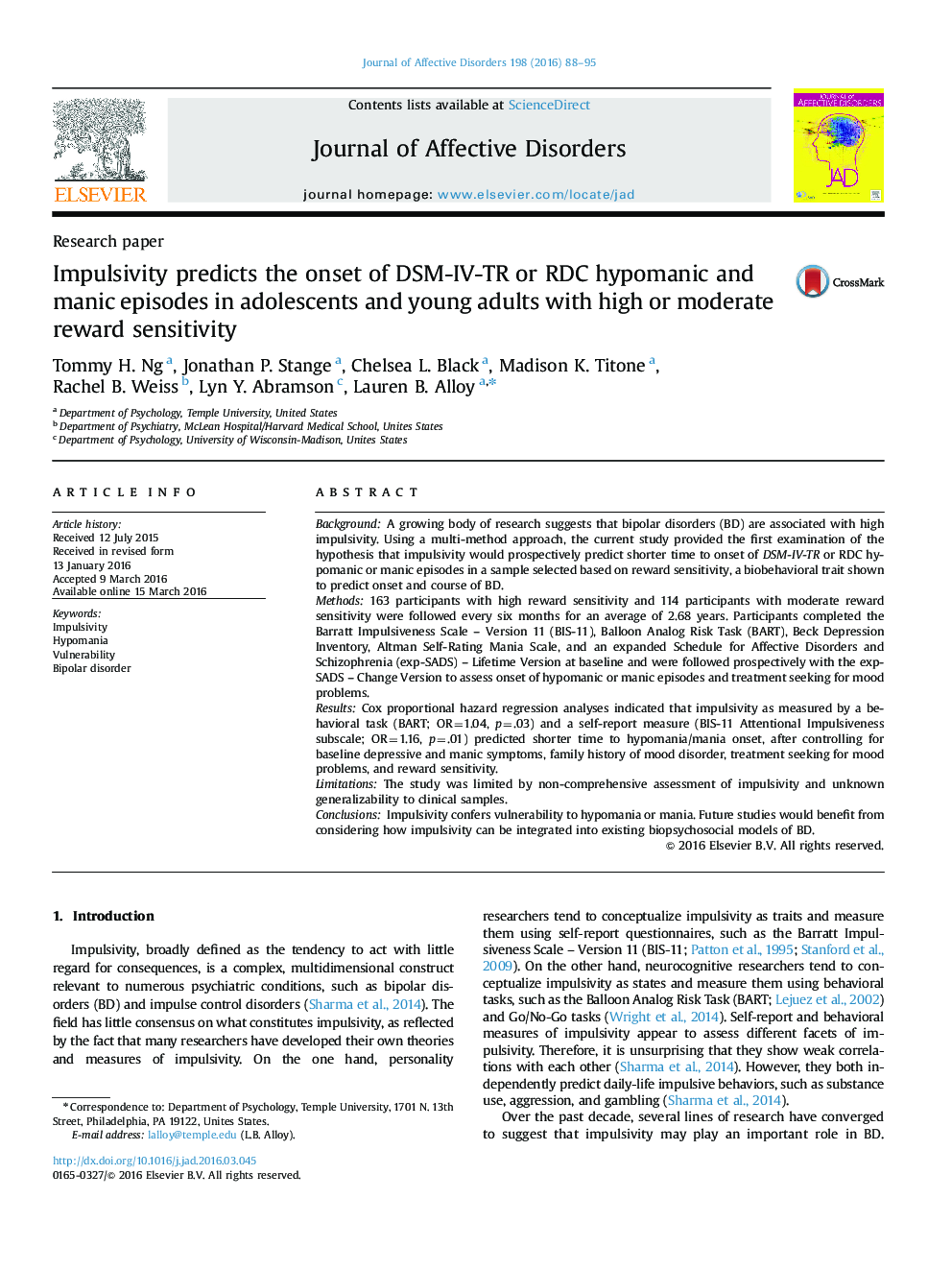| کد مقاله | کد نشریه | سال انتشار | مقاله انگلیسی | نسخه تمام متن |
|---|---|---|---|---|
| 6230190 | 1608127 | 2016 | 8 صفحه PDF | دانلود رایگان |

- Bipolar disorders are associated with high impulsivity.
- Impulsivity predicts a shorter time to onset of hypomanic and manic episodes.
- Results are independent of the effects of seven covariates.
BackgroundA growing body of research suggests that bipolar disorders (BD) are associated with high impulsivity. Using a multi-method approach, the current study provided the first examination of the hypothesis that impulsivity would prospectively predict shorter time to onset of DSM-IV-TR or RDC hypomanic or manic episodes in a sample selected based on reward sensitivity, a biobehavioral trait shown to predict onset and course of BD.Methods163 participants with high reward sensitivity and 114 participants with moderate reward sensitivity were followed every six months for an average of 2.68 years. Participants completed the Barratt Impulsiveness Scale - Version 11 (BIS-11), Balloon Analog Risk Task (BART), Beck Depression Inventory, Altman Self-Rating Mania Scale, and an expanded Schedule for Affective Disorders and Schizophrenia (exp-SADS) - Lifetime Version at baseline and were followed prospectively with the exp-SADS - Change Version to assess onset of hypomanic or manic episodes and treatment seeking for mood problems.ResultsCox proportional hazard regression analyses indicated that impulsivity as measured by a behavioral task (BART; OR=1.04, p=.03) and a self-report measure (BIS-11 Attentional Impulsiveness subscale; OR=1.16, p=.01) predicted shorter time to hypomania/mania onset, after controlling for baseline depressive and manic symptoms, family history of mood disorder, treatment seeking for mood problems, and reward sensitivity.LimitationsThe study was limited by non-comprehensive assessment of impulsivity and unknown generalizability to clinical samples.ConclusionsImpulsivity confers vulnerability to hypomania or mania. Future studies would benefit from considering how impulsivity can be integrated into existing biopsychosocial models of BD.
Journal: Journal of Affective Disorders - Volume 198, 1 July 2016, Pages 88-95